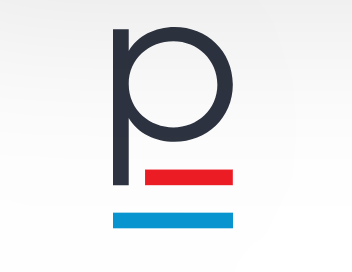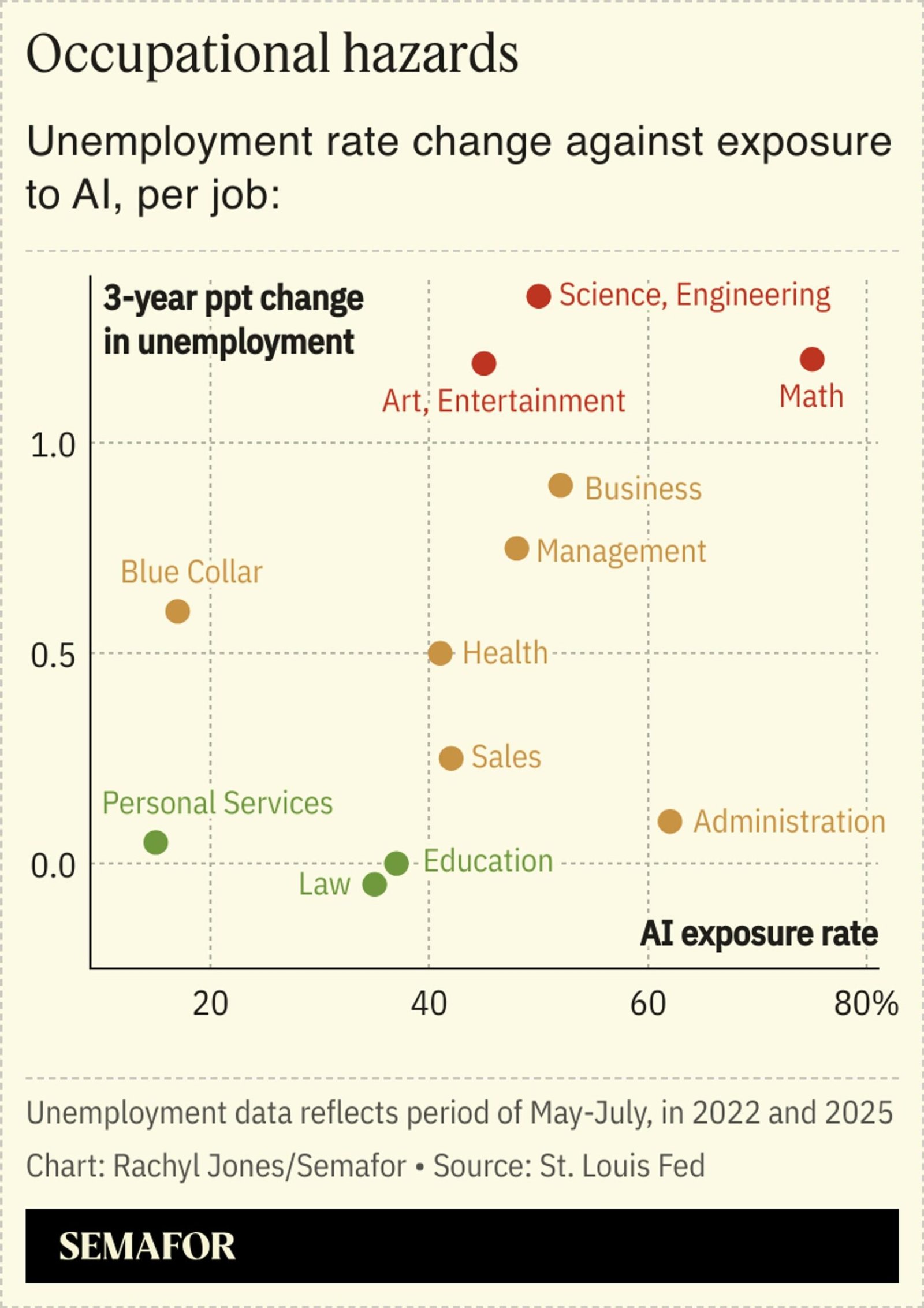Tools & Platforms
Polimorphic Closes $18.6M Series A Led by General Catalyst to Drive Government Efficiency with AI

Insider Brief
- Polimorphic raised $18.6M in a Series A led by General Catalyst to expand its AI-powered platform that modernizes local government services and improves resident experiences.
- Its tools — like the AI Front Desk and CRM — help governments digitize workflows, automate tasks, reduce manual labor, and provide 24/7 multilingual support across channels.
- Already used by cities and counties across the U.S., Polimorphic has saved over 55,000 working hours and will use the new funding to grow in key states and scale its sales and engineering teams.
PRESS RELEASE — Polimorphic, which uses AI to digitize resident services for local governments and their constituents, has announced an $18.6 million Series A, led by General Catalyst, and continued backing from investors M13 and Shine. With ever-growing pressure on governments for improved efficiency, this round of funding will allow Polimorphic to amplify its support of governments with AI, while making government services more human for residents.
A recent study revealed that many local governments lack the expertise and processes to leverage AI effectively, and only about 20% of the more than $90 billion of the U.S. government’s annual IT spending is devoted to modernization. In addition, local governments are seeing an unprecedented volume of repetitive, manual tasks, including answering the same questions by phone and email, processing simple paper forms, and hunting down information across disconnected systems, signaling a desperate need for the assistance of AI. At the same time, residents are expecting a private sector-like digital experience.
Using Polimorphic’s AI Front Desk, Constituent Relationship Manager, and Analytics, governments can modernize how they serve by providing access to services online, 24/7, and in more than 75 languages, while improving efficiency for government teams.
“With this funding, we’re accelerating our mission to be the AI company for government efficiency, making public service easier, faster, and more human for everyone,” said CEO and Co-founder Parth Shah. “Local governments are the front line of democracy, but they’ve been left behind by decades of underinvestment in technology. We’re here to change that. Our tools help staff serve residents more efficiently and build trust, reduce burnout, and unlock capacity for real community impact. This moment isn’t just about growth, it’s about building a future where every resident can get the help they need, and every public servant has the support they deserve.”
To date, Polimorphic customers have reduced voicemails by up to 90%, experienced a 75% reduction in walk-in requests, and collected more than $10 million in online payments, saving more than 55,000 working hours — or 26 years of work — combined. Polimorphic customers include cities, counties, state agencies, and special districts from across the country, including the City of Pacifica, CA; Tooele County, UT; Polk County, NC; and the Town of Palm Beach, FL. This new round of funding will accelerate growth in Polimorphic’s top states, including Wisconsin, New Jersey, North Carolina, Texas, Florida, and California.
“Polimorphic exemplifies what a true partnership should be: personable, professional, and deeply invested in shared success,” said Jess Savidge, Administrative and Communications Manager for the Town of Palm Beach, FL. “In a community like the Town of Palm Beach, where expectations are exceptionally high, their team has exceeded every standard through innovation, responsiveness, and a commitment to excellence. Thanks to their innovative platform and collaborative approach, we’ve continuously enhanced customer service and gained valuable insights to improve our digital presence. We look forward to continued collaborations to continue the delivery of world-class government services with the precision and quality of a top-tier business.”
The company’s newest round of funding will drive unmatched features in GovTech, including its AI Front Desk, a full-service constituent platform that includes a voice line, chatbot, search, SMS, and email. Plus, powerful GIS-based resident support, agentic AI application reviews, advanced analytics, and additional innovative AI features.
“Polimorphic has the potential to become the next modern system of record for local and state government. Historically, it’s been difficult to drive adoption of these foundational platforms beyond traditional ERP and accounting in the public sector,” said Sreyas Misra, Partner at General Catalyst. “AI is the jet fuel that accelerates this adoption. Parth and the team are making it possible for local and state governments to automate highly complex workflows from end-end, something that’s been out of reach until now.”
“Government inefficiency creates billions of dollars in waste, a problem Polimorphic’s solutions are built to solve,” said M13 General Partner Latif Peracha. “By digitizing how residents and cities interact, they are removing that wasted time and money from the system.”
In addition to innovative AI product features, the funding will allow Polimorphic to triple the size of its sales and engineering teams, driving its mission to create solutions that let governments of all sizes deliver for the people.
About Polimorphic
Polimorphic uses artificial intelligence (AI) to help local governments better serve their communities. Polimorphic’s AI Front Desk, Constituent Relationship Manager, and Dashboard & Analytics empower service-first governments to provide residents with the highest quality and accessible communication and engagement. Serving hundreds of public sector departments across the country, Polimorphic is built for the unique needs of government, including cities, counties, and state agencies. Polimorphic is backed by world-class investors, including General Catalyst, M13, and Shine. Learn more or request a demo at polimorphic.com.
About General Catalyst
General Catalyst is a global investment and transformation company that partners with the world’s most ambitious entrepreneurs to drive resilience and applied AI.
We support founders with a long-term view who challenge the status quo, partnering with them from seed to growth stage and beyond.
With offices in San Francisco, New York City, Boston, Berlin, Bangalore, and London, we have supported the growth of 800+ businesses, including Airbnb, Anduril, Applied Intuition, Commure, Glean, Guild, Gusto, Helsing, Hubspot, Kayak, Livongo, Mistral, Ramp, Samsara, Snap, Stripe, Sword, and Zepto.
For more: www.generalcatalyst.com, @generalcatalyst
Contacts
Megan Olson, Director of Marketing, Polimorphic
[email protected]
414–477–8846
Tools & Platforms
AI can’t work without humans, for now, report finds

The emerging picture, for now, is that humans are still needed to work in conjunction with AI.
Despite warnings from AI leaders that the technology will wipe out entire classes of workers in the coming years, a report by the New York Federal Reserve found that manufacturing and service industries in the region are mostly safe from new technologies taking jobs in the near term. Managers are increasingly opting to retrain their employees rather than axing them.
As part of their warnings, AI leaders have also indicated that entirely new jobs will surface with the AI boom. It’s too early to say what all those roles will be, but some artists have gotten an early taste of their job description in a post-AI world. Graphic designers are being hired by businesses to fix sloppy AI-generated photos — often images with gibberish language and messy lines that don’t scale well, NBC reported.
While creatives have historically devised and illustrated their ideas, using tech tools like Photoshop to fine-tune them, the script appears to have flipped — with AI starting the process and humans perfecting the final product. It’s likely to be the recipe for many jobs moving forward, from software development to journalism.
Tools & Platforms
Will AI replace lawyers? What Canadian legal professionals should know

To remain compliant, lawyers should review court guidance and consult their jurisdiction’s Code of Conduct. For example, the law society of Alberta published a “Gen AI Rules of Engagement for Canadian Lawyers” to guide practitioners. As tech evolves, the burden is on lawyers to ensure their AI-use meets conduct standards.
Will AI replace lawyers practicing in specific areas? That doesn’t seem to be the case today and in the foreseeable future. Instead of replacing lawyers, AI is more likely to become a tool that enhances the work of legal practitioners. Used properly, AI lets lawyers focus on high-value activities like strategic planning, client counselling, and courtroom representation.
Ultimately, the question is not whether AI will replace lawyers. Instead, it will be how lawyers can use AI to better serve clients. Here are some tips for leveraging AI for lawyers:
Invest in continuous learning
Stay updated on developments in legal technology, AI tools, and changes in Canadian law. Regularly attending seminars, webinars, and legal tech conferences can help keep pace with industry trends. This means signing up for events and seminars like the Canadian Legal Summit to stay up to date with what’s happening in legal tech.
Embrace technology
Rather than viewing AI as a threat, treat it as an opportunity to enhance your practice. Experiment with reputable legal AI tools for research, document review, or contract analysis before integrating them into your workflow.
Tools & Platforms
Grant Thornton Advisors to Sink $1 Billion Over Three Years on AI

Top 10 accounting firm Grant Thornton announced on Sept. 4 that Grant Thornton Advisors is investing $1 billion over three years to provide artificial intelligence tools and technology to the entire workforce at its multinational professional services platform, which stretches from the Americas across Europe to the Middle East.
The firm said the investment will help the platform deliver innovative and high-quality accounting, tax, and advisory services based on a people-centric model powered by AI. As a result, the multinational platform will be able to deliver a better end-to-end digital experience for both its professionals and its clients.
Grant Thornton Advisors established its multinational, mutidisciplinary platform in January 2025, with backing from private equity firm New Mountain Capital, which acquired a significant stake in Grant Thornton US in June 2024.
As a result, Grant Thornton now operates in an alternative practice structure: Grant Thornton LLP, a licensed CPA firm, provides attest services, and Grant Thornton Advisors LLC provides business advisory and non-attest services.
To date, Grant Thornton US sister firms from Ireland, the United Arab Emirates, Switzerland/Liechtenstein, the Netherlands, Luxembourg, the Cayman Islands, and the Channel Islands have joined the multinational platform.
As part of its AI investment, Grant Thornton Advisors is providing the more than 13,500 platform professionals in 60 multinational offices with access to Microsoft 365 Copilot. The rollout complements an earlier pilot project that saw Grant Thornton Advisors provide Microsoft’s AI tool to a 400-person cohort of professionals, generating significant productivity gains, the firm said.
“This isn’t just about investing in AI and technology, it’s about investing in our people,” Grant Thornton Advisors CEO Jim Peko said in a statement. “We’re giving every professional across our multinational platform—from Chicago to Dubai—the kinds of tools they need to work smarter, faster, and in keeping with their individual styles. The result is something that is uniquely Grant Thornton: People who are empowered do their best work so clients benefit from the quality and results they need.”
Mike Kempe, chief information officer for Grant Thornton Advisors, added, “This investment is a big step as we ensure that every person at the Grant Thornton Advisors platform has AI and technology resources at the ready—from our newest hires to our most seasoned professionals. The Microsoft 365 Copilot rollout, for example, will help our people save time, balance their workloads, and make more insightful decisions. This means they’ll be able to efficiently provide our clients with personalized high-quality services.”
Tom Puthiyamadam, Grant Thornton Advisors’ managing partner for advisory services in the U.S., stresses that the Copilot rollout is one of many moves that will help the firm deliver quality services powered by AI and grounded in human insights.
“We’re building a full-service platform amplified by AI and advanced technologies,” he said. “Investing in tools such as Copilot is a critical next step in this effort and part of a steady cadence of innovations that will help us provide clients with novel solutions to whatever challenges lie ahead.”
Over the past year, Grant Thornton Advisors has made progress implementing a phased AI maturity model across its platform. In May, it launched CompliAI, a proprietary AI solution that uses advanced capabilities and a custom-trained large-language model, to help clients control and assess risks.
In addition, Grant Thornton Advisors recently acquired Auxis, a U.S.-based leader in outsourcing and business modernization services. And last month, it added Stax, a strategy consulting firm specializing in commercial due-diligence, value-creation, and exit-planning services for private equity firms, as well as their portfolio companies and advisors.
Thanks for reading CPA Practice Advisor!
Subscribe for free to get personalized daily content, newsletters, continuing education, podcasts, whitepapers and more…
Subscribe
Already registered? Log In
Need more information? Read the FAQs
-

 Business1 week ago
Business1 week agoThe Guardian view on Trump and the Fed: independence is no substitute for accountability | Editorial
-
Tools & Platforms3 weeks ago
Building Trust in Military AI Starts with Opening the Black Box – War on the Rocks
-

 Ethics & Policy1 month ago
Ethics & Policy1 month agoSDAIA Supports Saudi Arabia’s Leadership in Shaping Global AI Ethics, Policy, and Research – وكالة الأنباء السعودية
-

 Events & Conferences4 months ago
Events & Conferences4 months agoJourney to 1000 models: Scaling Instagram’s recommendation system
-

 Jobs & Careers2 months ago
Jobs & Careers2 months agoMumbai-based Perplexity Alternative Has 60k+ Users Without Funding
-

 Education2 months ago
Education2 months agoVEX Robotics launches AI-powered classroom robotics system
-

 Funding & Business2 months ago
Funding & Business2 months agoKayak and Expedia race to build AI travel agents that turn social posts into itineraries
-

 Podcasts & Talks2 months ago
Podcasts & Talks2 months agoHappy 4th of July! 🎆 Made with Veo 3 in Gemini
-

 Podcasts & Talks2 months ago
Podcasts & Talks2 months agoOpenAI 🤝 @teamganassi
-

 Education2 months ago
Education2 months agoMacron says UK and France have duty to tackle illegal migration ‘with humanity, solidarity and firmness’ – UK politics live | Politics

